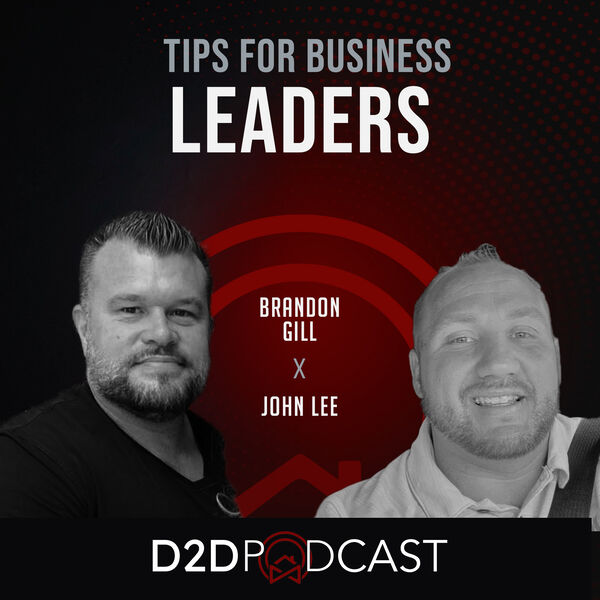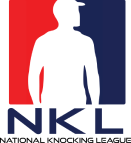Ad 00:06
Hey, this is Mike at Salesrabbit.com. We’ve got four great new product coming out: Movers, Weather, Data Grid AI, and Digital Contracts. These things are going to change the face of the field sales industry come visit us at salesrabbit.com to learn more.
Sam Taggart 00:20
What’s up guys, Sam Taggart, the D2D podcast and I’m here with John Lee, Brandon Gill, and Jofel Mijares, got it rightYou’re straight out of like Venezuela. Right? Where are you from?
Yes. from Venezuela. And did you know that just adopted that is like Bitcoin is their currency? What are your thoughts on that? Sorry, random just we’re going tangent on the Bitcoin because I’m curious. So thoughts on why they do that? Do you know anything about that? Yeah, no, no. Okay. Your thoughts on that? And you guys Bitcoin people? Definitely. Baby, where’s it going? Where’s it going? Bitcoin? So
00:55
the move? I mean, I think that bitcoins gonna take off. I mean, I think that by the end of the year, I think we’ve all had the same prediction that it’s gonna take off, I think it will, in time replace what we currently know as currency. Certainly, that’s what I that’s what I believe. Yeah, I’m heavily invested in I tell everyone else to invest.
01:14
mean, for the ride that I hold baby letter, I
01:18
put $100 on every single coin out there and see what happens. 20 years later, you’ll be a millionaire. I feel like
Sam Taggart 01:24
it’s probably the truth. Okay, so we’re not talking about Bitcoin. We’re talking about business. But so tell us a little bit about how many been in the industry, how you got in the industry. Let’s do just quick interest. So starting to
“I’ve been in the industry, 15 years, started off in Colorado,”
01:36
say I’ve been in the industry, 15 years, started off in Colorado, just first 10 years, we’re in the alarm industry, and then jumped into solar. Five years ago, I had some friends making some killer money. Just seemed like it was more of an opportunity to grow and recruit. And I felt better about what I was actually selling a higher end product. And, yeah, now I’m here. Five years later,
Sam Taggart 02:00
we had some definitely, we had to have cross paths and the alarm space. I don’t know how I had to do so. So rely on who else then? What years? 2008. Okay, I wasn’t there. Anyway. Yeah, sure. We had like, same homies. It was Apex Apex back in the day. So Brandon, also a long time.
02:19
I’ve been to five years total 2016 Before that, it was an oil and gas industry. And I was in the alarms and alarms for about two years and then I met John out of one his reps and I connect down the field. And he’s Hey, man, I know that you get your credit probably approved, give them a call go pick up with him. So I called John had a little credit deal on the field. And sure he got it done. That following week we met for lunch, not even about nothing, just meeting you know, maybe by the Lord or whatever. And then two weeks later, you know, we’re talking for solver. It’s crazy. And the journey kind of again, pretty cool.
03:01
Right now. So I have four years he here in United State. So I have four years in the industry.
03:10
So he just started right into American Dream
03:19
start with electricity. Okay, basically, I won’t regret it. So I said the commission so I see the opportunity. So yeah, definitely for me, door to door was the best opportunity in that moment, you know. And then I go to the I went to the alarms industry to John, and then I’m back to electricity again, around one year. I have already almost two half year in solar.
03:48
That’s awesome. So did you know English before your your
03:52
you learned it here I English is these four years?
“They’re hard workers and they’re good salespeople.”
Sam Taggart 03:56
That’s awesome. Yeah. So here’s a question. Can I ask you like, is this offensive? I don’t want to be offensive, but like a lot of times when we’re trying to recruit like I go to Mexico and I’m like, Dude, you guys are all killing a tornado, you know, the dude trying to slay me stuff like, you know, there is yeah, like there’s a lot of good salespeople, not America. I feel like they’re straight hustlers. And they’re willing to work. They’re hard. They’re hard workers and they’re good salespeople. But then the problem is is getting them like a work visa and trying to get them involved. Was that a hard process? Or is that just like we figured it out and made it work or?
04:26
Yeah, and sales is different basically we figured out cool guys, it’s easy you
Sam Taggart 04:32
know? Yeah, that’s how I was like man it’s always like a hard I never know how that works. I’m always like, how do we get more immigrants to come in? Because I dude, I made some straight Israeli candidates, Canadian candidates and some like you know Latin America cats are just land so I’m always like, Well, how do we make that happen? Okay, so let’s talk about just simple like system so you know, obviously welcome to the mastermind, you guys during the circle you came to our business boot camp, we just jammed for literally eight hours melting heads against process process process. What have you guys found to be successful systems in your guys’s business that have helped you organize and scale you guys run a successful solar installer run a successful solar sales company? Having you in Texas? Like what? What systems have you guys implemented that has helped you so far?
05:20
Such as just
05:21
a just they could be an install system? It could be a money system, it could be, you know, I
05:24
think it’s I think one of the just think that one of the systems that we have is just when people come in, they’re just going to get what we say they’re going to get. I think that’s a big problem in the industry. Now, it’s not necessarily a system is just fulfilling what you say you’re going to do a lot of installers say they’re gonna do XYZ, sales companies promise XYZ. And when you come in, you kind of get what you get, you know, I think that we make it smooth to transition from coming in from your day one, and to transition over to being a top sales rep. And we try to make sure I think that we are confident in our systems to transition people from going from nothing to being a sales. So being in the software industry, essentially. Yeah, yeah.
Sam Taggart 06:04
So just the simplicity and delivering how often I mean, you’ve been in this for four or 515 years, how many times do you see reps get kind of hosed by people that are like, here’s all the promise in the world and then they go there. And it’s like, Oh, I was expecting this. How do we avoid that? Like, how do you avoid this over promise under deliver culture that we tend to see in this space,
“it all comes back down to your culture and why people stay with the company”
06:29
doing just that just not over promising and under derived deliver? Do you feel they feel it’s tough, it’s definitely challenging, because sometimes being direct and being like, being straight honest with people isn’t what people want to hear. It’s interesting, because people, we I found throughout my years, the hundreds and 1000s of recruits, sometimes people just want to be foodgasm, they want to feel like they’re going to get XYZ, even if they’re not. And we have found that when we are just, and it’s been that fine line, we get people that come in, we’re very clear cut with the expectation and what they’re doing. And sometimes that bites us in the butt, they literally leave us to go and make more money to find out afterwards. It wasn’t anything more than they’re already getting, you know. So I think that I think it all comes back down to your culture and why people stay with the company. It’s just having that unified culture and the reason outside of money on why someone wants to be with a company that their way. Cool. So
Sam Taggart 07:24
any other systems that you guys can think of that has helped you even just on a personal level, stay organized, stay motivated, stay committed? You know, it sounds like Brandon, you’re just the Silent Assassin that just goes out and slays everybody in town,
07:35
I just like to, you know, just be on board with people. But first of all, we’re led or led by him by God and the person and they will do and our culture is around that our reps know that. And we’re mentors to him through that phase. It’s not in the flashiness. It’s kind of, we’re not flashy, but we’re true to who we are. And in a rep, see there, and they can find this and they, and they trust us. And you know, what we’re doing now and about to do so even a bigger plan to the force, there’s some beta platform, to be able to exploit what we’re about and what our true values are. So I think that’s something that kind of separates us a lot from other companies. And, and, and it’s, it’s true, what is truthful, people, you know, sometimes not good to hear the truth. But I don’t say you hear the more, no one hears from God, but it’s the real deal.
Sam Taggart 08:35
I love that. Because a lot of people, it’s kind of the serving versus pleasing is what I call it, it’s like so many times, we want to please them by telling them what they want to hear. But it doesn’t necessarily serve them. And sometimes it’s like, it’s in your best interest for me to hit you with the truth. call you out, call a spade a spade, and help you because that’s what long term going to have value return. It’s going to, you know, serve you on a higher level. So I love that. Do you have anything to add? No. Cool. So question and this could just be one for each you guys. So just take a second to think about it. What’s one of the hard things you’ve maybe had to deal with in this industry that you’re like, man, I was about to quit or this just pissed me off. I had a day where, you know, I had a manager I had a situation where it’s been a hardship and then you’ve been able to overcome that because I think a lot of people out there you know, this isn’t an easy job. Like there’s times where your family is stressed. There’s times where money stressed there’s times where
09:36
magics over here. He just got off the phone go down boys, like the guy was cussing at me, and I was ready to throw the phone to the window referral. Did you get a referral you save the deal and gets a referral to clap
Sam Taggart 09:57
this is like it’s so funny because you know, we We deal with that stuff on a constant basis and a lot of people can’t take the you know what I mean? A lot of people can’t take the stress that comes from, you know, dealing with just dealing with crap. So what does anything come to mind that you’re like, Man, that’s been a hardship and I’ve been able to overcome that, or it’s something I’ve dealt with and process.
10:19
The hardest part in this job is the fear of rejection, basically. But when you keep going, is that fear disappear, you know?
Sam Taggart 10:31
So let’s talk about like language barrier. I mean, coming to here and not being able to speak fluent English. And being like, I’m gonna knock on some rich white dudes door who doesn’t have the patient with some dude like stuttering over his words? You’re probably sitting there like I do, you
10:45
know, my first white guy, this is
10:56
Rodriguez family. Okay
11:05
I can like play the game cuz like no speaking English, and you’re like crap. Like, white boy knows Spanish like, and then tree, but like the Chinese and Indians and like some of the other languages. I’m like, I don’t know your language and like, wrong house mob.
Sam Taggart 11:22
So yeah, keep going. Sorry. But there’s got to be that scare. And that rejection, the insecurity language, the
11:26
language basically was the hardest part of the beginning, you know, because it’s like, okay, what do I need to say right now is like, Oh, my God, but I’ll focus on Spanish market. Spanish people.
Sam Taggart 11:41
Cool. So you just kind of like, I know who my audience is. I’m gonna there’s enough of them in Texas. We’re gonna be okay.
11:47
Yeah, I try English. That’s why I learning a little bit. But it’s basically is out of my comfort zone. Cool.
Sam Taggart 11:57
And so a lot of your sales reps and stuff like that. Are they all Latin? Speak speak Spanish? Or do you
12:02
think my thing is in Spanish? Bilingual, but most of the Spanish speaking.
Sam Taggart 12:07
So how do you overcome this fear of rejection? And what have you done to kind of mentally toughen yourself to say get over it? And
12:16
so, basically, when when I start this business, in my situation, basically, like, Okay, what what are what, what are my options right now? Is go to a restaurant, go to construction, you know, paying 12 hour per hour. It’s like, okay, here, I make 2000 3000 5000 a week, you know, it’s like, okay, it’s easy
Sam Taggart 12:45
to do this. Yeah. So what advice would you give to maybe there’s probably a lot of people who listen to this, that are having me translate it for them. And I’m like, sorry, you know, you know, they’re still English is their second language. And I know, I had a lady literally in Norway just hit me up. I’ve had Jap Japan, Australia, Latin America, there’s door to door everywhere in the world. But I think primarily, I have a big audience and you are in the United States. But like, there’s a lot of people that English is their second language, what advice would you give them? As they’re still struggling with this insecurity? Or they’re, you know, they’re going to adore trying to like it go sound Spanish? It’s hard, like, what would you tell them?
13:27
So basically, focus on your language. If you’re speak English, and I will be totally English speakers. If you speak Spanish, obviously, Target, you’re a Spanish speaker. If you’re speak Italian, trying to find the Italian people, you know, then you learn that the English cool is when when you learn language, you will make money you grow, you know,
Sam Taggart 13:56
and people were patient with you, I’m assuming there’s probably been people that you’ve sold in English, that they’re just like a good job. Like, I get what you’re saying. And now you you’re still able to sell it, but still kind of a little bit of a broken English, and you’re learning about push myself and challenge myself, and never gonna get anywhere. And I think that is with anything with life. It’s like, someone’s like, I’m not a swimmer. So I’m never gonna swim. It’s like, No, you just haven’t learned how to swim. It’s not that you aren’t a swimmer. It’s just you have chosen to swim or fight or bike or language or math or whatever writing, it doesn’t matter. So yeah, so awesome. What about you to anything hard that you’ve like, had to really deal with that has been just a challenge in life or in this job that you’ve had to overcome?
14:38
I mean, for me, I think the hardest challenge coming from the alarm industry was I was so used to fast pay. And there’s two that were that actually hard. They’re two totally opposite ends of the stick. But one was you have to wait, you know, three, four weeks before you actually get paid your full rep on the deal because you have to wait for the install. I find that a lot of other people find that challenging as well. For me it was challenging because I was used to If I sell X amount of deals, I get paid the following week. So learning just to be patient on waiting for my money and how not only be patient waiting for the install, but when coming from alarms, at least, if you sell it and installs the same day with solar, you have to attend that customer weekend week out several weeks down the road and make sure that they’re still good. Which is complete opposite of alarms, it’s like sell it and sell it. Please don’t call me and solar, it’s like or sell it. Okay, if they’re calling me, I’d better pick up the phone and make sure they’re good, you know, cuz it’s not gonna make a damn install. So that that was one of my big challenges for sure. Cool. Other big challenges. I’ve heard this recently, just is just the compensation and solar being so different, how to handle the influx of revenue that comes in, like, what do you do with it? Making money and actually tending that money and nurturing it to become something bigger is, is I think challenging the industry, I think that people get paid a lot of money, but they have old bad spending habits. So their income goes here, but their spending habits go here. And at the end of the day, they’re left with the same thing as where they were at beforehand. And I think that was another thing that I found the ability when you sell a deal, how much money you would make? What do you do with that money? Where’s it going? Okay, so I made a bunch of money, what am I doing with it? Am I just gonna blow it now? Am I gonna go to get nicer things? Or am I gonna use it essentially propel myself in the future? That was my other challenge that we’ve, in the beginning, that was the only thing anything you want to add, or,
16:33
I mean, my most challenging English, I guess, live now xx is Co Op, Sony co ops, going into the industry. I saw a lot of volume, you know, when I first started doing this, and, you know, not knowing what I was really, I was I was selling and going to the next deal, you know, when other procurement department doing our installs, handling all the backend work. And so I had, I mean, I still like 25, one month or so on these co ops. And I thought they were in good shape. And you’re like, Oh, yeah. Come out and didn’t do any kind of net metering. They didn’t, they just kind of quit it. And so upset customers that I hadn’t. I mean, customers,
17:22
ignorance is bliss baby.
17:37
So now I’m very aware of how to deal with co ops and educated on that. So
“And that’s like life changing money. That’s half their income.”
Sam Taggart 17:42
I like selling and no, and I’m gonna, I’m gonna say something. Everyone listening watching this, and please share this for this moment in time. My girlfriend was out there selling last week. And same thing, she thought that there was a payback, and she’s gonna do a 200% offset. She said on people that are making 30 grand a year at 16 kilowatt system. And I’m over here like, whoa, whoa, whoa, like you explained on the tax credit, right? Like you explained on that. They don’t get it. Like, why are 200? Well, because you’re going to write a check. And I was like, Oh, my gosh, so train your people, please. Why? Because make sure they’re the right company. Yeah, 818 months down the road, when they don’t get that tax check that they thought they were going to get. You’re the one getting a bad review, and you’re the one getting pissed off customer. And that’s like life changing money. That’s half their income. If they think they’re making this 50,000 check, and then they’re only getting a 2000 back and that like that is detrimentally deflating to them. Yeah. And then they’re not getting checks from the utility company or they’re not. They also have a $300 bill still, because the co op is set up this way. And they didn’t do the battery, you know what I mean? And, like, educate yourself before you put your you can’t just put your head in the sand and be like, well, we sold it this way in this market. So I can sell it this way in this market. It does not work that way. And I have seen too many people get mis trained and mis educated and they’re just passed down from their forefathers the crappy education. So pay attention, listen up and get trained the right way. So you’re not screwing over customers sick of it. I’m sick of seeing it hit home this last week, close to where you literally had to go back to customers and be like, I am forfeiting 1000s of dollars in commissions. That sucks. I worked a month out of free charity and we had to fix it you know I mean we’re some people aren’t fixing their shit like it’s sad. So anyway, sorry for my little rant. Get good training. That’s why I do to us we uniform here’s how to train on tax credits, but we don’t have every little co op in the EU. We don’t have every little net metering program like you’ve got to go down to the nitty gritty and spend some time on deregulated in Dallas is different than selling in Utah, which is different than zone in San Diego
19:52
and give them an install partner to them. Yeah, so they can help you.
Sam Taggart 19:57
So I didn’t mean to like rant for five seconds, but Anyway, so next question. Ready? is a good one? Rapid fire? Favorite cereal? Really good one? No. So the next question I wanted to kind of pose to all three you guys is, if you’re somebody that is doing you guys run little small teams and I want to speak, speak to the small teams, and you know, your team of four or five, three or four, you know, like, kind of in these little pockets, and sometimes it gets deflating or demotivating, or it’s hard to like, herd the cats, when everybody’s kind of doing their own thing, what things have helped you get aligned to where you’re, you know, running that little posse on your own little island yet still feel like you’re part of the bigger company? How do you like organize that? Or stay motivated? What things are you looking forward to implementing? Or, you know, to keep this small little team versus I’m a team of 2530? Guys, it’s kind of like you’re just naming a number on a crowd. Three guys is like, just three guys. Let’s go again. How do you how do you manage that? What’s been effective? What’s helpful? What advice would you give somebody that’s also maybe running a little or team in a smaller area, something like that.
21:10
I mean, go work with him. Side by side daily, have fun with him, you work out with him the mornings as the gym, you know, chit chat with them throughout the day and knowledge, check on their family, their kid, you’re just, you’re just together. And then, you know, competitions with between just you and them, you know, just a little things about their opinion, and they’ll make it fun. And, you know, we’re definitely in a small town, we’re out in LA, small to Tyler. You know, getting recruiting people can be kind of challenging. And so we do drive up and work in this area quite often in Dallas and Forney area, which is outside of Dallas. And just picking in trying to build in grad recruits from from other areas, you know, just but no, I mean, we were taught in it, you know, we work together and we make it fun. So
Sam Taggart 22:06
cool. No, I think there’s a power and like, we work out together, reading the same book. We go to family parties together, and we, you know, you make it like when you have a small team like that. It’s like, you gotta make it personal. Yeah, you’re in each other’s lives. I love that. Yeah.
22:22
Yeah, it’s basically keep that small thing like a family, you know, Brandon says, Go to workout, try to educate that that people what basically motivate me to, to keep to grow? Is that is how you write I have three or four persons. Okay, how can I get 10? So how was my mistake before? How, why I lose people. So I need to learn about I
“you can mold them into a better person, rather than if you had 25 People from Jump Street”
23:00
think that when you have like a small team, you know, it’s not actually necessarily a bad thing, because in order to get a big team, you got to start small hundreds. And I think that, you know, when you have a small team, it gives you an opportunity, a unique opportunity, that you can spend more time individually with each one of those people. And you can mold them into a better person, rather than if you had 25 People from Jump Street, and you can’t train them all. At the same time. If you even if you tried to, you’re gonna have half understanding and half not. So having the ability to have two or three people is a is honestly sometimes a blessing in disguise, it gives you an opportunity to literally mold them to be your future rockstars of your company. So when you do bump into a team of 10, it’s like, well, now I’ve got my core, you know, my core guys and girls that can go out and help train the future cadets, essentially,
Sam Taggart 23:49
I think people underestimate the power of this volunteer. I’ve seen more people, I consulted a group in Oklahoma, one day, they had 25 reps, and they’re a big roofing company, they did like 2.5 million, the next day go to demonstrate to their competitor that also did 2.5 million, and then three reps. Which would you rather be one with 24 Extra headaches. I was just like, it doesn’t necessarily mean more money, more volume, I think the problem is, is if they don’t have a good foundation, if some key guys throw down, and I’m like if you put those two together, and you had three or four guys that were doing 2.5 million combined with the 25 the rising tide would up level the other 25. But if you’re missing this core group of guys that are slammed, you’re just kind of sifting through crap here. And so that’s like my, my two cents and advice. But what one last thing and I guess I’m just curious from a feedback because we just spent a whole day on site. What’s like one thing you’re excited about learning? You know, we just learned they’re looking forward to implementing that we just learned from boot camp or the solid site that we just did anything in particular you’re like, Dude, I know if we did this. This was my one little nugget Get even like the the Hey, I’ll give you 300 bucks is to come with me
25:05
yeah, for me it was it for me it was just the the implementing a system and that if we have correct systems that everyone can understand when people come in they understand it’s a system they’re just not alright it’s not individual base anymore it’s not just hey okay today we’re gonna do this tomorrow but then if I’m not here then he says that she can’t at this time if they attachment to your schedule a system a process that’s consistent that’s consistent so for me that was the biggest thing that I got off out of it and what actually hit me harder than anything was the four ways like when you’re actually recruiting people didn’t even realize it but you know like having them go to a meeting you know having them be a shadow having them meet a manager having them then come to the office whatever it is for me it was when I had seven people around me earlier I was like and these are some of my core guys I actually did all four of those things with every one of us but yeah we’re trying to hire based on just up you want to jump up come into the office you know yes or no try to sell you one job and and it doesn’t get some usually work out that way. So it’s fine just a re hit me with you know, it’s so logical and you just forget it and touch was really good that you brought that to the surface cool that was what I got
26:21
st for me I think the system’s the that we learned also will send me the competition is getting united into a big competition group was the even having our company compete against other companies and the people in
Sam Taggart 26:37
in Tyler they won the national knocking the hell with those guys. So then we back to back here. Yeah, so literally but this is cool. Like we decided about in our mastermind, we, the experts circle and we compete their companies together. Were in we’re joking, because one of the roofing companies won the national knocking last year, which is our biggest tournament, and he saw solar there that he grew. So hopefully they can collab or whatever. But it was cool to see, you know, in a small town small company goes and plays against like companies like CMR who do 200 million and they can play against these bigger companies. And it’s five D 575. or So far it’s equal playing field let’s go and just having that camaraderie and knowing that you’re competing against people in your own backyard and then you get to play that game makes you so much more hungry. Like we all just laugh and it’s like okay, well you’re down and then you get you embarrassed and then we just put you online like Hey, cool again second place congrats like
27:45
bring it on.
27:46
Yeah, what about you? Yeah, definitely same process system structure is very important to the company.
Sam Taggart 27:55
Well, thank you guys so much for being on the show. It’s been a pleasure working with you guys. And then obviously you got the next 12 months together so hopefully don’t get too sick of me. And if you got if you guys got some value out of this, send them some love. Go follow along, go check them out. We’ve got you know, share this comment, like leave a review on the podcast. We’re here to help obviously other business owners to feel more inspired and to level up so much love. Thank you





























